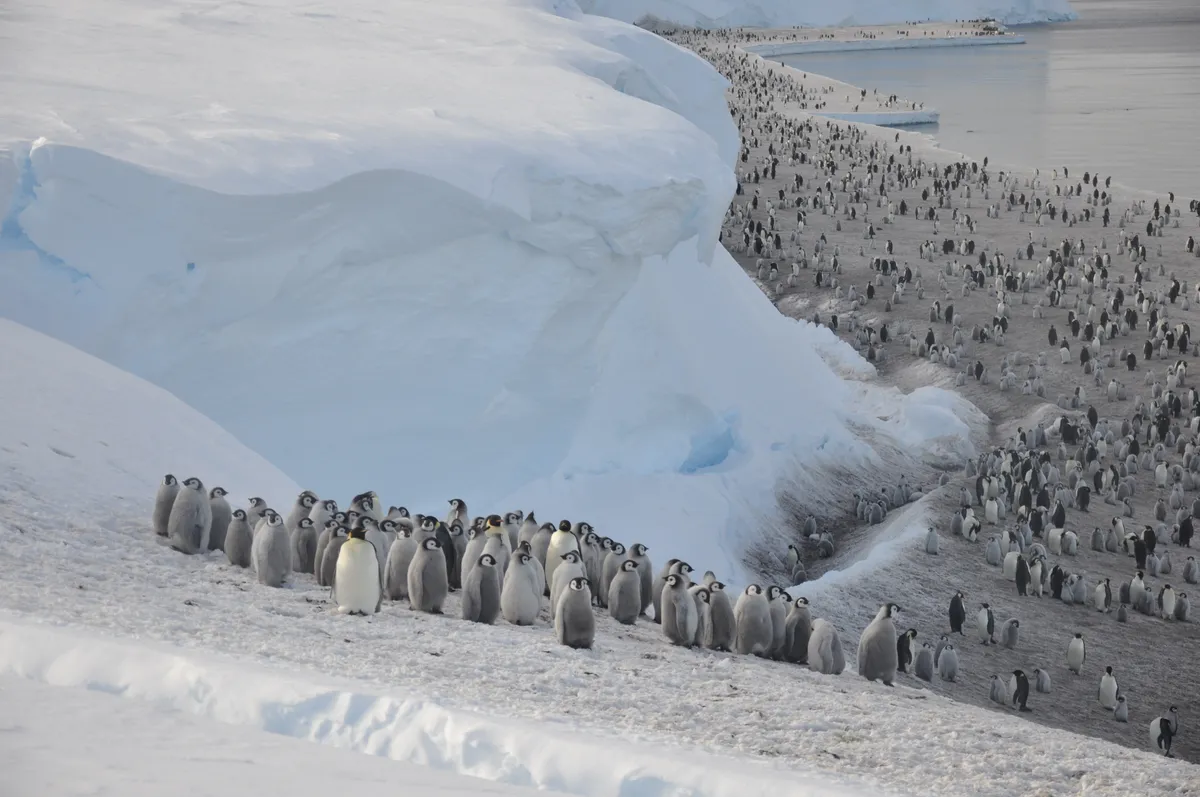A new review in Biological Conservation of over 150 studies on the emperor penguin, its environment, behaviour, and reproduction has concluded that greater protection measures are needed if the species is to persist.
The largest and heaviest of all penguins, this species is currently classified as Near Threatened but, due to the increasing threats of climate change, the paper recommends their extinction risk be upgraded to Vulnerable.
Emperor penguins depend on seasonal Antarctic sea-ice as a place to moult, breed, and raise their chicks. Current predictions suggest that this sea-ice will be greatly affected by climate change, with rising temperatures and changing wind patterns leading to late sea-ice formation, early break up, and even complete failure of fast ice formation.

This could have a devastating effect on emperor penguin populations. Without this stable platform, their reproductive success would take a major hit. Indeed, studies have indicated that some colonies could decrease by more than 50%.
“Currently, we have no idea how the emperors will adjust to the loss of their primary breeding habitat – sea-ice. They are not agile, and climbing ashore across steep coastal landforms will be difficult," explains Dr Philip Trathan, lead author of the review.
"For breeding, they depend upon sea-ice and, in a warming world, there is a high probability that this will decrease. Without it, they will have little or no breeding habitat.”

Additionally, emperor penguins are ‘catastrophic moulters’, meaning that they replace their entire plumage within a few weeks. Whilst undergoing this annual moult, their feathers are no longer waterproof and they cannot go in the sea. Stable sea-ice on which to moult is therefore essential.
If the greater protection measures recommended by the review are put into effect, it will enable scientists to better co-ordinate research into these iconic birds and the threats they face.
Though periods of warming and cooling have occurred over the evolutionary history of this species, the current unprecedented rates of warming exerts pressures under which they may struggle to recover.
Co-author Dr Peter Fretwell emphasises the importance of these further protections:
“Some colonies of emperor penguins may not survive the coming decades, so we must work to give as much protection as we can to the species, to give them the best chance.”
Read the full paper in Biological Conservation.
Find out more about penguins:
Main image: Emperor penguin family. © British Antarctic Survey
